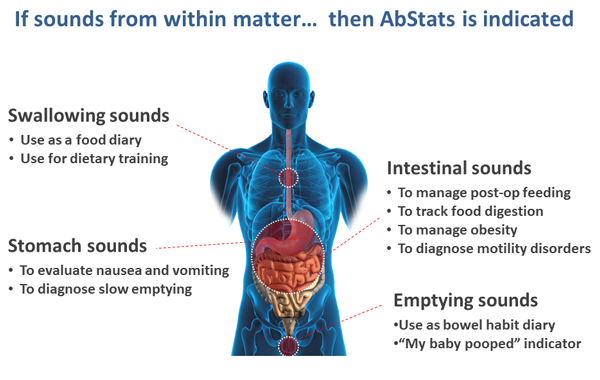AbStats has potential for hospital, clinic, ambulatory and home care
AbStats technology has the potential to penetrate multiple markets quickly, provide irreplaceable clinical data about the GI tract, offer a novel way for patients and providers to track gastrointestinal disease between scheduled visits, offer the general public a way to quantify their own physiology, and ultimately provide a powerful value proposition to payers, hospitals and healthcare providers.

AbStats will be useful in a broad spectrum of patients and indications. Some specific examples include:
IBS affects 10% of the world’s population and is among the most common conditions experienced by people. Marked by abdominal pain and defecatory symptoms, IBS is not only common, but also significant impacts quality of life. It is difficult to monitor the condition correctly, yet diagnostic and therapeutic decision making depends on valid and reliable patient reporting of their illness. AbStats may revolutionize how we monitor and categorize patients with IBS. For example, patients with predominantly “stress” mechanisms of IBS might develop anxiety initially, and GI abnormalities secondarily. In contrast, patients with “non-stress” causes might first develop GI abnormalities, and only then show signs of anxiety. AbStats AGIS sensors can help tell the difference in ways that are not currently possible.
